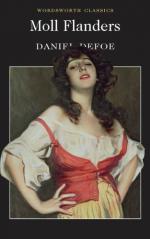|
This section contains 10,492 words (approx. 35 pages at 300 words per page) |

|
SOURCE: Chaber, Lois A. “Matriarchal Mirror: Women and Capital in Moll Flanders.” PMLA 97, no. 2 (March 1982): 212-26.
In the following essay, Chaber explicates some of the Marxist and matriarchal themes of Defoe's novel.
I
Moll Flanders' escape through London streets after her first theft is an image of breathless flight through a maze, which Terence Martin sees as an objective correlative for Moll's confused psychology. These literally tortuous streets, however, exemplify what Raymond Williams calls the “forced labyrinths and alleys of the poor,” created by speculative builders exploiting the overcrowded.1 As an emblem for the whole novel, then, they more appropriately evoke the twisted course laid out for Moll in an unjust society: “I knew what I aim'd at, but knew nothing how to pursue the end by direct means.”2 Martin typifies those well-meaning participants in the great debate over irony in Moll Flanders who seek to elevate the...
|
This section contains 10,492 words (approx. 35 pages at 300 words per page) |

|


